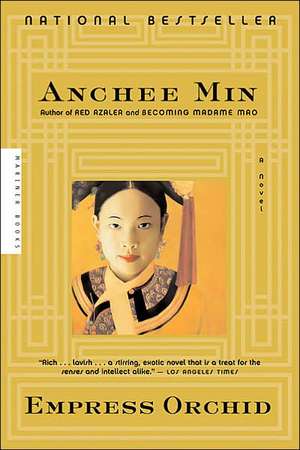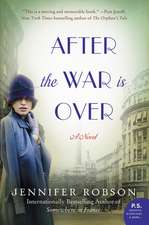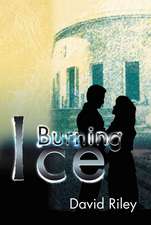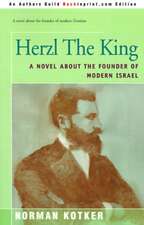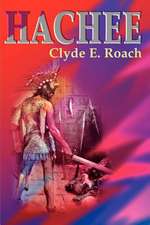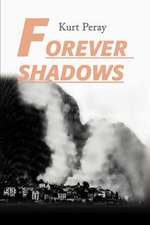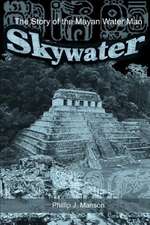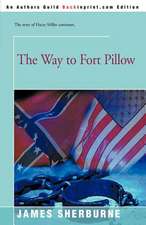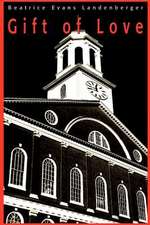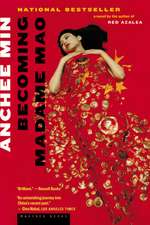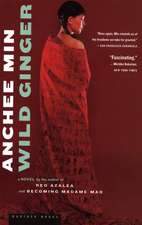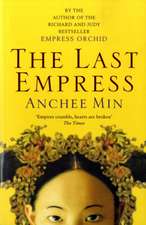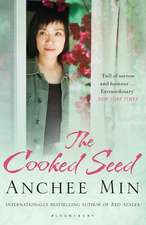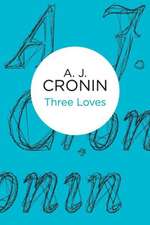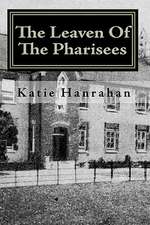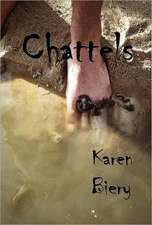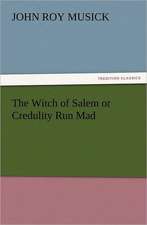Empress Orchid
Autor Anchee Minen Limba Engleză Paperback – 10 apr 2005
The
beloved
classic
that
turned
Carson
McCullers
into
an
overnight
literary
sensation
and
one
of
the
Modern
Library's
top
20
novels
of
the
twentieth
century.
“I love this book! It's a great, great read and not hard at all.” ??—?? Oprah Winfrey
In a Georgia mill town during the 1930s, an enigmatic deaf-mute, John Singer, draws out the haunted confessions of an itinerant worker, a doctor, a widowed café owner, and a young girl. Each yearns for escape from small town life, but the young girl, Mick Kelly, the book's heroine (loosely based on McCullers), finds solace in her music.
Wonderfully attuned to the spiritual isolation that underlies the human condition, and with a deft sense for racial tensions in the South, McCullers spins a haunting, unforgettable story that gives voice to the rejected, the forgotten, and the mistreated??—??and, through Mick, gives voice to the quiet, intensely personal search for beauty.
Featured in Oprah's Book Club 2004
“I love this book! It's a great, great read and not hard at all.” ??—?? Oprah Winfrey
In a Georgia mill town during the 1930s, an enigmatic deaf-mute, John Singer, draws out the haunted confessions of an itinerant worker, a doctor, a widowed café owner, and a young girl. Each yearns for escape from small town life, but the young girl, Mick Kelly, the book's heroine (loosely based on McCullers), finds solace in her music.
Wonderfully attuned to the spiritual isolation that underlies the human condition, and with a deft sense for racial tensions in the South, McCullers spins a haunting, unforgettable story that gives voice to the rejected, the forgotten, and the mistreated??—??and, through Mick, gives voice to the quiet, intensely personal search for beauty.
Featured in Oprah's Book Club 2004
Preț: 103.05 lei
Nou
Puncte Express: 155
Preț estimativ în valută:
19.72€ • 21.43$ • 16.58£
19.72€ • 21.43$ • 16.58£
Carte disponibilă
Livrare economică 31 martie-14 aprilie
Preluare comenzi: 021 569.72.76
Specificații
ISBN-13: 9780618562039
ISBN-10: 0618562036
Pagini: 368
Dimensiuni: 140 x 210 x 23 mm
Greutate: 0.38 kg
Ediția:Reprint
Editura: HMH Books
Colecția Mariner Books
Locul publicării:United States
ISBN-10: 0618562036
Pagini: 368
Dimensiuni: 140 x 210 x 23 mm
Greutate: 0.38 kg
Ediția:Reprint
Editura: HMH Books
Colecția Mariner Books
Locul publicării:United States
Extras
One
My imperial life began with a smell. A rotten smell that came from my father’s coffin—he had been dead for two months and we were still carrying him, trying to reach Peking, his birthplace, for burial. My mother was frustrated. “My husband was the governor of Wuhu,” she said to the footmen whom we had hired to bear the coffin. “Yes, madam,” the head footman answered humbly, “and we sincerely wish the governor a good journey home.” In my memory, my father was not a happy man. He had been repeatedly demoted because of his poor performance in the suppression of the Taiping peasant uprisings. Not until later did I learn that my father was not totally to blame. For years China had been dogged by famine and foreign aggression. Anyone who tried on my father’s shoes would understand that carrying out the Emperor’s order to restore peace in the countryside was impossible—peasants saw their lives as no better than death.
I witnessed my father’s struggles and sufferings at a young age. I was born and raised in Anhwei, the poorest province in China. We didn’t live in poverty, but I was aware that my neighbors had eaten earthworms for dinner and had sold their children to pay off debts. My father’s slow journey to hell and my mother’s effort to fight it occupied my childhood. Like a long- armed cricket my mother tried to block a carriage from running over her family.
The summer heat baked the path. The coffin was carried in a tilted position because the footmen were of different heights. Mother imagined how uncomfortable my father must be lying inside. We walked in silence and listened to the sound of our broken shoes tapping the dirt. Swarms of flies chased the coffin. Each time the footmen paused for a break the flies covered the lid like a blanket. Mother asked my sister Rong, my brother Kuei Hsiang and me to keep the flies away. But we were too exhausted to lift our arms. We had been traveling north along the Grand Canal on foot because we had no money to hire a boat. My feet were covered with blisters. The landscape on both sides of the path was bleak. The water in the canal was low and dirt- brown. Beyond it were barren hills, which extended mile after mile. There were fewer inns to be seen. The ones that we did come upon were infested with lice.
“You’d better pay us,” the head footman said to Mother when he heard her complaint that her wallet was near empty, “or you will have to carry the coffin yourselves, madam.” Mother began to sob again and said that her husband didn’t deserve this. She gained no sympathy. The next dawn the footmen abandoned the coffin.
Mother sat down on a rock by the road. She had a ring of sores sprouting around her mouth. Rong and Kuei Hsiang discussed burying our father where he was. I didn’t have the heart to leave him in a place without a tree in sight. Although I was not my father’s favorite at first —he was disappointed that I, his firstborn, was not a son—he did his best in raising me. It was he who insisted that I learn to read. I had no formal schooling, but I developed enough of a vocabulary to figure out the stories of the Ming and Ch’ing classics.
At the age of five I thought that being born in the Year of the Sheep was bad luck. I told my father that my friends in the village said that my birth sign was an inauspicious one. It meant that I would be slaughtered.
Father disagreed. “The sheep is a most adorable creature,” he said. “It is a symbol of modesty, harmony and devotion.” He explained that my birth sign was in fact strong. “You have a double ten in the numbers. You were born on the tenth day of the tenth moon, which fell on the twenty-ninth of November 1835. You can’t be luckier!” Also having doubts regarding my being a sheep, Mother brought in a local astrologer to consult. The astrologer believed that double ten was too strong. “Too full,” the old hag said, which meant “too easily spilled.” “Your daughter will grow up to be a stubborn sheep, which means a miserable end!” The astrologer talked excitedly as white spittle gathered at the corners of her mouth. “Even an emperor would avoid ten, in fear of its fullness!” Finally, at the suggestion of the astrologer, my parents gave me a name that promised I would “bend.” This was how I was called Orchid.
Mother told me later that orchids had also been the favorite subject of my father’s ink paintings. He liked the fact that the plant stood green in all seasons and its flower was elegant in color, graceful in form and sweet in scent.
My father’s name was Hui Cheng Yehonala. When I close my eyes, I can see my old man standing in a gray cotton gown. He was slender with Confucian features. It is hard to imagine from his gentle look that his Yehoonala ancestors were Manchu Bannermen who lived on horseback. Father told me that they were originally from the Nu Cheng people in the state of Manchuria, in northern China between Mongolia and Korea. The name Yehonala meant that our roots could be traced to the Yeho tribe of the Nala clan in the sixteenth century. My ancestors fought shoulder to shoulder with the Bannerman leader Nurhachi, who conquered China in 1644 and became the first Emperor of the Ch’ing Dynasty. The Ch’ing had now entered its seventh generation. My father inherited the title of Manchu Bannerman of the Blue Rank, although the title gave him little but honor.
When I was ten years old my father became the taotai, or governor, of a small town called Wuhu, in Anhwei province. I have fond memories of that time, although many consider Wuhu a terrible place. During the summer months the temperature stayed above one hundred degrees, day and night. Other governors hired coolies to fan their children, but my parents couldn’t afford one. Each morning my sheet would be soaked with sweat. “You wet the bed!” my brother would tease.
Nevertheless, I loved Wuhu as a child. The lake there was part of the great Yangtze River, which drove through China carving out gorges, shaggy crags, and valleys thick with ferns and grasses. It descended into a bright, broad, richly watered plain where vegetables, rice and mosquitoes all thrived. It flowed on until it met the East China Sea at Shanghai. Wuhu meant “the lake of a luxuriant growth of weeds.” Our house, the governor’s mansion, had a gray ceramic-tile roof with the figures of gods standing at the four corners of the tilted eaves. Every morning I would walk to the lake to wash my face and brush my hair. My reflection in the water was mirror-clear. We drank from and bathed in the river. I played with my siblings and neighbors on the slick backs of buffalo. We did fish-and-frog jumps. The long bushy weeds were our favorite hiding places. We snacked on the hearts of sweet water plants called chiao-pai.
In the afternoon, when the heat became unbearable, I would organize the children to help cool the house. My sister and brother would fill buckets, and I would pull them up to the roof where I poured the water over the tiles. We would go back to the water afterward. P’ieh, bamboo rafts, floated by. They came down the river like a giant loose necklace. My friends and I would hop onto the rafts for rides. We joined the raft men singing songs. My favorite tune was “Wuhu Is a Wonderful Place.” At sunset Mother would call us home. Dinner was set on a table in the yard under a trellis covered with purple wisteria.
My mother was raised the Chinese way, although she was a Manchu by blood. According to Mother, after the Manchus conquered China they discovered that the Chinese system of ruling was more benevolent and efficient, and they adopted it fully. The Manchu emperors learned to speak Mandarin. Emperor Tao Kuang ate with chopsticks. He was an admirer of Peking opera and he hired Chinese tutors to teach his children. The Manchus also adopted the Chinese way of dressing. The only thing that stayed Manchu was the hairstyle. The Emperor had a shaved forehead and a rope- like braid of black hair down his back called a queue. The Empress wore her hair with a thin black board fastened on top of her head displaying ornaments.
My grandparents on my mother’s side were brought up in the Ch’an, or Zen, religion, a combination of Buddhism and Taoism. My mother was taught the Ch’an concept of happiness, which was to find satisfaction in small things. I was taught to appreciate the fresh air in the morning, the color of leaves turning red in autumn and the water’s smoothness when I soaked my hands in the basin.
My mother didn’t consider herself educated, but she adored Li Po, a Tang Dynasty poet. Each time she read his poems she would discover new meanings. She would put down her book and gaze out the window. Her goose-egg-shaped face was stunningly beautiful.
Mandarin Chinese was the language I spoke as a child. Once a month we had a tutor who came to teach us Manchu. I remember nothing about the classes but being bored. I wouldn’t have sat through the lessons if it hadn’t been to please my parents. Deep down I knew that my parents were not serious about having us master the Manchu language. It was only for the appearance, so my mother could say to her guests, “Oh, my children are taking Manchu.” The truth was that Manchu was not useful. It was like a dead river that nobody drank from.
I was crazy about Peking operas. Again, it was my mother’s influence. She was such an enthusiast that she saved for the entire year so she could hire a local troupe for an in-house performance during the Chinese New Year. Each year the troupe presented a different opera.My mother invited all the neighbors and their children to join us. When I turned twelve the troupe performed Hua Mulan.
I fell in love with the woman warrior, Hua Mulan. After the show I went to the back of our makeshift stage and emptied my wallet to tip the actress, who let me try on her costume. She even taught me the aria “Goodbye, My Dress.” For the rest of the month people as far as a mile from the lake could hear me singing “Goodbye, My Dress.” My father took pleasure in telling the background to the operas. He loved to show off his knowledge. He reminded us that we were Manchus, the ruling class of China. “It is the Manchus who appreciate and promote Chinese art and culture.” When liquor took hold of my father’s spirit, he would become more animated. He would line up the children and quiz us on the details of the ancient Bannerman system. He wouldn’t quit until every child knew how each Bannerman was identified by his rank, such as Bordered, Plain, White, Yellow, Red and Blue.
One day my father brought out a scroll map of China. China was like the crown of a hat ringed by countries eager and accustomed to pledging their fealty to the Son of Heaven, the Emperor. Among the countries were Laos, Siam and Burma to the south; Nepal to the west; Korea, the Ryukyu Islands and Sulu to the east and southeast; Mongolia and Turkestan to the north and northwest.
Years later, when I recalled the scene, I understood why my father showed us the map. The shape of China was soon to change. By the time my father met his fate, during the last few years of Emperor Tao Kuang, the peasant revolts had worsened. In the midst of a summer drought, my father didn’t come home for months. My mother worried about his safety, for she had heard news from a neighboring province about angry peasants setting their governor’s mansion on fire. My father had been living in his office and trying to control the rebels. One day an edict arrived. To everyone’s shock the Emperor dismissed him.
Father came home deeply shamed. He shut himself in the study and refused visitors. Within a year his health broke down. It didn’t take him long to die. Our doctor bills piled up even after his death. My mother sold all of the family possessions, but we still couldn’t clear the debts. Yesterday Mother sold her last item: her wedding souvenir from my father, a butterfly hairpin made of green jade.
Before leaving us, the footmen carried the coffin to the bank of the Grand Canal so we could see the passing boats, where we might get help. The heat worsened and the air grew still. The smell of decay from the coffin grew stronger. We spent the night under the open sky, tormented by the heat and mosquitoes. My siblings and I could hear one another’s stomachs rumbling.
I woke at dawn and heard the clattering of a horse’s hooves in the distance. I thought I was dreaming. In no time a rider appeared in front of me. I felt dizzy with fatigue and hunger. The man dismounted and walked straight toward me. Without saying a word he presented me with a package tied with ribbon. He said it was from the taotai of the local town. Startled, I ran to my mother, who opened the package. Inside were three hundred taels of silver.
“The taotai must be a friend of your father’s!” Mother cried. With the help of the rider we hired back our footmen. But our good luck didn’t last. A few miles down the canal we were stopped by a group of men on horses led by the taotai himself. “A mistake has been made,” he said. “My rider delivered the taels to the wrong family.” Hearing this, Mother fell to her knees.
The taotai’s men took back the taels.
Exhaustion suddenly overwhelmed me and I fell on my father’s coffin.
The taotai walked to the coffin and squatted as if studying the grains of the wood. He was a stocky man with rough features. A moment later he turned to me. I expected him to speak but he didn’t.
“You are not a Chinese, are you?” he finally asked. His eyes were on my unbound feet.
“No, sir,” I replied. “I am Manchu.” “How old are you? Fifteen?” “Seventeen.” He nodded. His eyes continued to travel up and down, examining me.
“The road is filled with bandits,” he said. “A pretty girl like you should not be walking.” “But my father needs to go home.” My tears ran.
The taotai took my hand and placed the silver taels in my palm. “My respects to your father.” I never forgot about the taotai. After I became the Empress of China I sought him out. I made an exception to promote him. I made him a provincial governor, and he was given a handsome pension for the rest of his life.
Copyright © 2004 by Anchee Min. Reprinted by permission of Houghton Mifflin Company.
My imperial life began with a smell. A rotten smell that came from my father’s coffin—he had been dead for two months and we were still carrying him, trying to reach Peking, his birthplace, for burial. My mother was frustrated. “My husband was the governor of Wuhu,” she said to the footmen whom we had hired to bear the coffin. “Yes, madam,” the head footman answered humbly, “and we sincerely wish the governor a good journey home.” In my memory, my father was not a happy man. He had been repeatedly demoted because of his poor performance in the suppression of the Taiping peasant uprisings. Not until later did I learn that my father was not totally to blame. For years China had been dogged by famine and foreign aggression. Anyone who tried on my father’s shoes would understand that carrying out the Emperor’s order to restore peace in the countryside was impossible—peasants saw their lives as no better than death.
I witnessed my father’s struggles and sufferings at a young age. I was born and raised in Anhwei, the poorest province in China. We didn’t live in poverty, but I was aware that my neighbors had eaten earthworms for dinner and had sold their children to pay off debts. My father’s slow journey to hell and my mother’s effort to fight it occupied my childhood. Like a long- armed cricket my mother tried to block a carriage from running over her family.
The summer heat baked the path. The coffin was carried in a tilted position because the footmen were of different heights. Mother imagined how uncomfortable my father must be lying inside. We walked in silence and listened to the sound of our broken shoes tapping the dirt. Swarms of flies chased the coffin. Each time the footmen paused for a break the flies covered the lid like a blanket. Mother asked my sister Rong, my brother Kuei Hsiang and me to keep the flies away. But we were too exhausted to lift our arms. We had been traveling north along the Grand Canal on foot because we had no money to hire a boat. My feet were covered with blisters. The landscape on both sides of the path was bleak. The water in the canal was low and dirt- brown. Beyond it were barren hills, which extended mile after mile. There were fewer inns to be seen. The ones that we did come upon were infested with lice.
“You’d better pay us,” the head footman said to Mother when he heard her complaint that her wallet was near empty, “or you will have to carry the coffin yourselves, madam.” Mother began to sob again and said that her husband didn’t deserve this. She gained no sympathy. The next dawn the footmen abandoned the coffin.
Mother sat down on a rock by the road. She had a ring of sores sprouting around her mouth. Rong and Kuei Hsiang discussed burying our father where he was. I didn’t have the heart to leave him in a place without a tree in sight. Although I was not my father’s favorite at first —he was disappointed that I, his firstborn, was not a son—he did his best in raising me. It was he who insisted that I learn to read. I had no formal schooling, but I developed enough of a vocabulary to figure out the stories of the Ming and Ch’ing classics.
At the age of five I thought that being born in the Year of the Sheep was bad luck. I told my father that my friends in the village said that my birth sign was an inauspicious one. It meant that I would be slaughtered.
Father disagreed. “The sheep is a most adorable creature,” he said. “It is a symbol of modesty, harmony and devotion.” He explained that my birth sign was in fact strong. “You have a double ten in the numbers. You were born on the tenth day of the tenth moon, which fell on the twenty-ninth of November 1835. You can’t be luckier!” Also having doubts regarding my being a sheep, Mother brought in a local astrologer to consult. The astrologer believed that double ten was too strong. “Too full,” the old hag said, which meant “too easily spilled.” “Your daughter will grow up to be a stubborn sheep, which means a miserable end!” The astrologer talked excitedly as white spittle gathered at the corners of her mouth. “Even an emperor would avoid ten, in fear of its fullness!” Finally, at the suggestion of the astrologer, my parents gave me a name that promised I would “bend.” This was how I was called Orchid.
Mother told me later that orchids had also been the favorite subject of my father’s ink paintings. He liked the fact that the plant stood green in all seasons and its flower was elegant in color, graceful in form and sweet in scent.
My father’s name was Hui Cheng Yehonala. When I close my eyes, I can see my old man standing in a gray cotton gown. He was slender with Confucian features. It is hard to imagine from his gentle look that his Yehoonala ancestors were Manchu Bannermen who lived on horseback. Father told me that they were originally from the Nu Cheng people in the state of Manchuria, in northern China between Mongolia and Korea. The name Yehonala meant that our roots could be traced to the Yeho tribe of the Nala clan in the sixteenth century. My ancestors fought shoulder to shoulder with the Bannerman leader Nurhachi, who conquered China in 1644 and became the first Emperor of the Ch’ing Dynasty. The Ch’ing had now entered its seventh generation. My father inherited the title of Manchu Bannerman of the Blue Rank, although the title gave him little but honor.
When I was ten years old my father became the taotai, or governor, of a small town called Wuhu, in Anhwei province. I have fond memories of that time, although many consider Wuhu a terrible place. During the summer months the temperature stayed above one hundred degrees, day and night. Other governors hired coolies to fan their children, but my parents couldn’t afford one. Each morning my sheet would be soaked with sweat. “You wet the bed!” my brother would tease.
Nevertheless, I loved Wuhu as a child. The lake there was part of the great Yangtze River, which drove through China carving out gorges, shaggy crags, and valleys thick with ferns and grasses. It descended into a bright, broad, richly watered plain where vegetables, rice and mosquitoes all thrived. It flowed on until it met the East China Sea at Shanghai. Wuhu meant “the lake of a luxuriant growth of weeds.” Our house, the governor’s mansion, had a gray ceramic-tile roof with the figures of gods standing at the four corners of the tilted eaves. Every morning I would walk to the lake to wash my face and brush my hair. My reflection in the water was mirror-clear. We drank from and bathed in the river. I played with my siblings and neighbors on the slick backs of buffalo. We did fish-and-frog jumps. The long bushy weeds were our favorite hiding places. We snacked on the hearts of sweet water plants called chiao-pai.
In the afternoon, when the heat became unbearable, I would organize the children to help cool the house. My sister and brother would fill buckets, and I would pull them up to the roof where I poured the water over the tiles. We would go back to the water afterward. P’ieh, bamboo rafts, floated by. They came down the river like a giant loose necklace. My friends and I would hop onto the rafts for rides. We joined the raft men singing songs. My favorite tune was “Wuhu Is a Wonderful Place.” At sunset Mother would call us home. Dinner was set on a table in the yard under a trellis covered with purple wisteria.
My mother was raised the Chinese way, although she was a Manchu by blood. According to Mother, after the Manchus conquered China they discovered that the Chinese system of ruling was more benevolent and efficient, and they adopted it fully. The Manchu emperors learned to speak Mandarin. Emperor Tao Kuang ate with chopsticks. He was an admirer of Peking opera and he hired Chinese tutors to teach his children. The Manchus also adopted the Chinese way of dressing. The only thing that stayed Manchu was the hairstyle. The Emperor had a shaved forehead and a rope- like braid of black hair down his back called a queue. The Empress wore her hair with a thin black board fastened on top of her head displaying ornaments.
My grandparents on my mother’s side were brought up in the Ch’an, or Zen, religion, a combination of Buddhism and Taoism. My mother was taught the Ch’an concept of happiness, which was to find satisfaction in small things. I was taught to appreciate the fresh air in the morning, the color of leaves turning red in autumn and the water’s smoothness when I soaked my hands in the basin.
My mother didn’t consider herself educated, but she adored Li Po, a Tang Dynasty poet. Each time she read his poems she would discover new meanings. She would put down her book and gaze out the window. Her goose-egg-shaped face was stunningly beautiful.
Mandarin Chinese was the language I spoke as a child. Once a month we had a tutor who came to teach us Manchu. I remember nothing about the classes but being bored. I wouldn’t have sat through the lessons if it hadn’t been to please my parents. Deep down I knew that my parents were not serious about having us master the Manchu language. It was only for the appearance, so my mother could say to her guests, “Oh, my children are taking Manchu.” The truth was that Manchu was not useful. It was like a dead river that nobody drank from.
I was crazy about Peking operas. Again, it was my mother’s influence. She was such an enthusiast that she saved for the entire year so she could hire a local troupe for an in-house performance during the Chinese New Year. Each year the troupe presented a different opera.My mother invited all the neighbors and their children to join us. When I turned twelve the troupe performed Hua Mulan.
I fell in love with the woman warrior, Hua Mulan. After the show I went to the back of our makeshift stage and emptied my wallet to tip the actress, who let me try on her costume. She even taught me the aria “Goodbye, My Dress.” For the rest of the month people as far as a mile from the lake could hear me singing “Goodbye, My Dress.” My father took pleasure in telling the background to the operas. He loved to show off his knowledge. He reminded us that we were Manchus, the ruling class of China. “It is the Manchus who appreciate and promote Chinese art and culture.” When liquor took hold of my father’s spirit, he would become more animated. He would line up the children and quiz us on the details of the ancient Bannerman system. He wouldn’t quit until every child knew how each Bannerman was identified by his rank, such as Bordered, Plain, White, Yellow, Red and Blue.
One day my father brought out a scroll map of China. China was like the crown of a hat ringed by countries eager and accustomed to pledging their fealty to the Son of Heaven, the Emperor. Among the countries were Laos, Siam and Burma to the south; Nepal to the west; Korea, the Ryukyu Islands and Sulu to the east and southeast; Mongolia and Turkestan to the north and northwest.
Years later, when I recalled the scene, I understood why my father showed us the map. The shape of China was soon to change. By the time my father met his fate, during the last few years of Emperor Tao Kuang, the peasant revolts had worsened. In the midst of a summer drought, my father didn’t come home for months. My mother worried about his safety, for she had heard news from a neighboring province about angry peasants setting their governor’s mansion on fire. My father had been living in his office and trying to control the rebels. One day an edict arrived. To everyone’s shock the Emperor dismissed him.
Father came home deeply shamed. He shut himself in the study and refused visitors. Within a year his health broke down. It didn’t take him long to die. Our doctor bills piled up even after his death. My mother sold all of the family possessions, but we still couldn’t clear the debts. Yesterday Mother sold her last item: her wedding souvenir from my father, a butterfly hairpin made of green jade.
Before leaving us, the footmen carried the coffin to the bank of the Grand Canal so we could see the passing boats, where we might get help. The heat worsened and the air grew still. The smell of decay from the coffin grew stronger. We spent the night under the open sky, tormented by the heat and mosquitoes. My siblings and I could hear one another’s stomachs rumbling.
I woke at dawn and heard the clattering of a horse’s hooves in the distance. I thought I was dreaming. In no time a rider appeared in front of me. I felt dizzy with fatigue and hunger. The man dismounted and walked straight toward me. Without saying a word he presented me with a package tied with ribbon. He said it was from the taotai of the local town. Startled, I ran to my mother, who opened the package. Inside were three hundred taels of silver.
“The taotai must be a friend of your father’s!” Mother cried. With the help of the rider we hired back our footmen. But our good luck didn’t last. A few miles down the canal we were stopped by a group of men on horses led by the taotai himself. “A mistake has been made,” he said. “My rider delivered the taels to the wrong family.” Hearing this, Mother fell to her knees.
The taotai’s men took back the taels.
Exhaustion suddenly overwhelmed me and I fell on my father’s coffin.
The taotai walked to the coffin and squatted as if studying the grains of the wood. He was a stocky man with rough features. A moment later he turned to me. I expected him to speak but he didn’t.
“You are not a Chinese, are you?” he finally asked. His eyes were on my unbound feet.
“No, sir,” I replied. “I am Manchu.” “How old are you? Fifteen?” “Seventeen.” He nodded. His eyes continued to travel up and down, examining me.
“The road is filled with bandits,” he said. “A pretty girl like you should not be walking.” “But my father needs to go home.” My tears ran.
The taotai took my hand and placed the silver taels in my palm. “My respects to your father.” I never forgot about the taotai. After I became the Empress of China I sought him out. I made an exception to promote him. I made him a provincial governor, and he was given a handsome pension for the rest of his life.
Copyright © 2004 by Anchee Min. Reprinted by permission of Houghton Mifflin Company.
Notă biografică
Anchee Min was born in Shanghai in 1957. At seventeen she was sent to a labor collective, where a talent scout for Madame Mao's Shanghai Film Studio recruited her to work as a movie actress. She came to the United States in 1984 with the help of actress Joan Chen. Her memoir, Red Azalea, was named one of the New York Times Notable Books of 1994 and was an international bestseller, with rights sold in twenty countries. Her novels Becoming Madame Mao and Empress Orchid were published to critical acclaim and were national bestsellers. Her two other novels, Katherine and Wild Ginger, were published to wonderful reviews and impressive foreign sales.
Descriere
The
beloved
classic
that
turned
Carson
McCullers
into
an
overnight
literary
sensation
and
one
of
the
Modern
Library's
top
20
novels
of
the
twentieth
century.
“I love this book! It's a great, great read and not hard at all.” ??—?? Oprah Winfrey
“I love this book! It's a great, great read and not hard at all.” ??—?? Oprah Winfrey
